
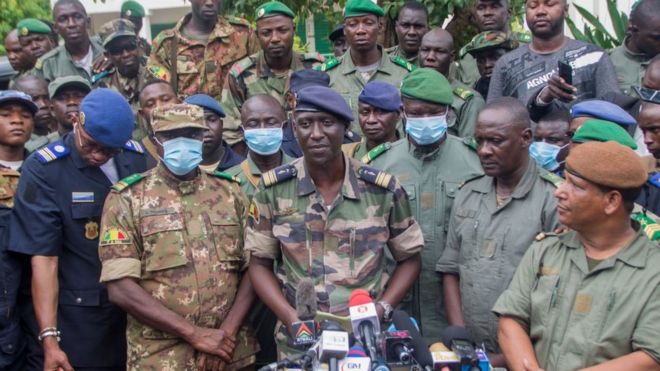
Coup leaders in Mali say they are talking to opposition parties about appointing a transitional president, who could be civilian or military.
They arrested Ibrahim Boubacar Keïta on Tuesday and forced him to resign, sparking global condemnation.
West African leaders have called for him to be reinstated and the UN says all those detained should be freed.
Mali has several jihadi groups in its northern deserts and there are fears they could take advantage of the coup.
They did so following the previous military takeover in 2012.
The coup leaders have promised to respect international agreements on fighting jihadists. Thousands of French, African and UN troops are based in the country to tackle the militants.
The opposition coalition, which had been campaigning for Mr Keïta to resign, has called for a rally on Friday to celebrate his departure.
In another development, an opposition leader kidnapped by militants in March ahead of disputed elections has written letters to his family, says the International Committee of the Red Cross. This is the first contact they have had since Soumaïla Cissé was seized in a case that shocked the country, reports the AFP news agency.
On Thursday, the Economic Community of West African States (Ecowas) said it would send envoys to ensure the return of constitutional order.
It also called for an “immediate build-up” of the Ecowas Standby Force, a multidisciplinary force of military, civilian and police personnel, which has intervened in previous crises in the region but always in far smaller countries than Mali.
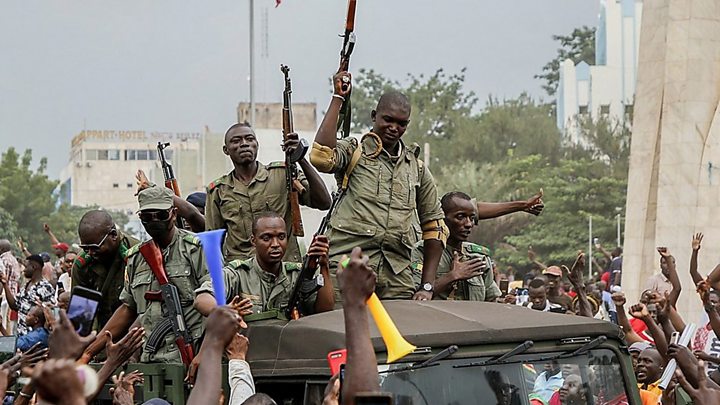
There is an increased military presence outside government ministries in the capital, Bamako, but shops and businesses have reopened.

Mr Keïta won a second term in elections in 2018, but since June has faced huge street protests over corruption, mismanagement of the economy and disputed legislative elections.
There has also been anger among troops about pay and the conflict with jihadists, which has seen scores of soldiers killed in the past year.
What did the military leaders say?
“We are going to set in place a transitional council, with a transitional president who is going to be either military or civilian,” junta spokesman Col Ismaël Wagué told TV channel France 24.
“We are in contact with civil society, opposition parties, the majority, everyone, to try to set the transition in place.”
The transition will happen “as quick as possible”, he added.
The junta has previously promised elections in a “reasonable time”.
It also announced that Mali’s borders would reopen, from midnight on Friday.
What have world leaders said?
West African leaders called for Mr Keïta to be reinstated.
“Mali is in a critical situation, with serious risks that a collapse of the state and institutions leads to reversals in the fight against terrorism and organised crime, with every consequence for all our community,” the 15-member Ecowas said at the end of a video summit on Thursday.
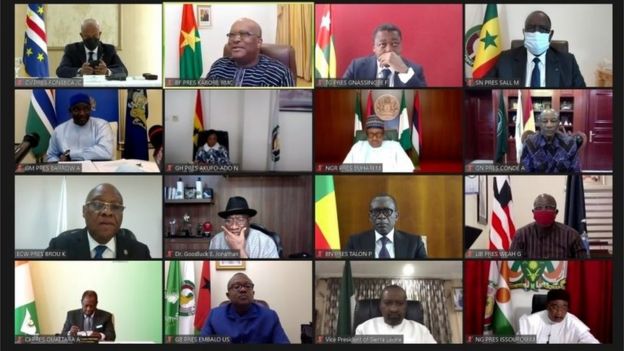
The African Union earlier suspended Mali, saying military coups were “something of the past which we cannot accept anymore”.
French President Emmanuel Macron said that France and Germany condemned the coup and wanted the quickest possible transition to civilian rule.
France, Mali’s former colonial ruler, has several thousand troops based in Mali fighting Islamist militant groups and its Armed Forces Minister Florence Parly tweeted that this operation would continue.
Where is Mr Keïta now?
The United Nations mission in Mali says its human rights team has visited him, and other officials detained by the leaders of this week’s coup.
It says they are still being held at the Kati military camp outside the capital Bamako, where the coup began, but gave no further details.
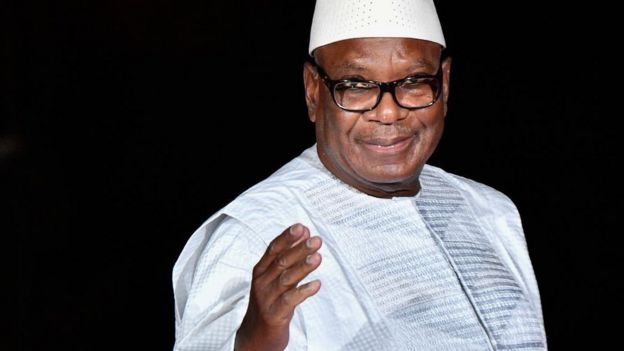 Image copyrightGETTY IMAGES
Image copyrightGETTY IMAGESThe military says two detainees have been released – the finance minister and the former president’s private secretary – but that 17 prisoners are still being held.
Who are the coup leaders?
Col Assimi Goita, 37, has presented himself as leader of the new military junta, which is calling itself the National Committee for the Salvation of the People (CNSP).
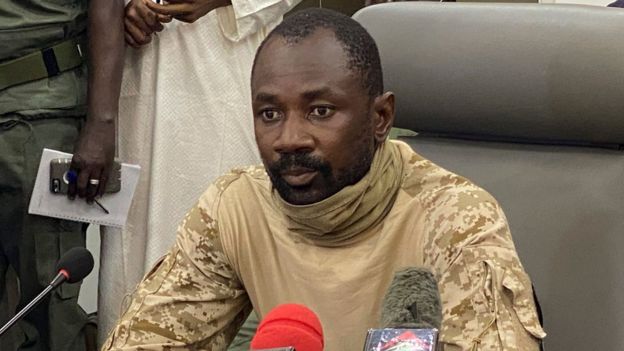
Col Goita was the head of Mali’s special forces and led the operations against the 2015 jihadist attack on the Radisson Blu hotel in Bamako.
He has reportedly received military training from France, Germany and the US, and took part in the UN peacekeeping mission in Sudan’s Darfur region.
Other members of the junta include Col Malick Diaw, CNSP vice-president, and Col Wagué, the air force deputy chief of staff.
What does the opposition say?
One of the parties in the M5 opposition coalition, CMAS, said it would support the coup leader in “developing a roadmap” towards new elections and called for rallies on Friday “to celebrate the Malian people’s victory”.
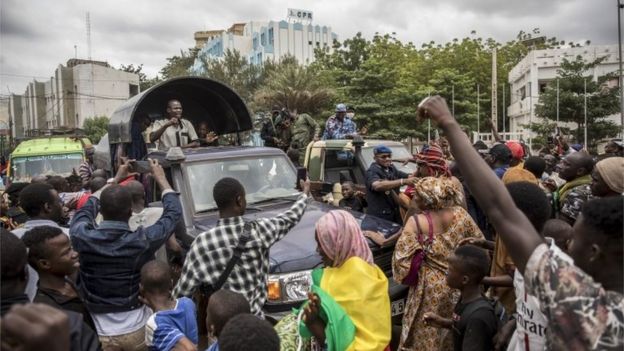
After meeting the coup leaders, the head of Mali’s opposition M5 movement, conservative Imam Mahmoud Dicko, announced he would be withdrawing from politics. No reasons were given.
Mr Dicko was one of the key figures in the huge street protests calling for Mr Keïta to resign.




